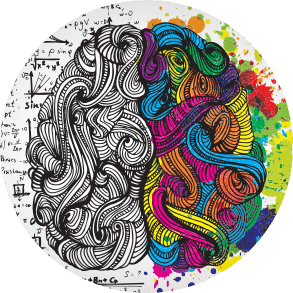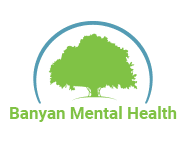Depression and Addiction
Nearly one-third of people with major depression also have an alcohol problem. This highlights the prevalent relationship between the experiences of mental illness and substance abuse. This form of sadness can have an effect not only on the person living with it but those close to them as well. Whether it’s with the intention to relieve this ever-present cloud through self-medication or just temporarily forgetting their situation altogether, depression and addiction create a dangerous combination. Banyan Mental Health takes a closer look.

How Is Depression Diagnosed?
As opposed to getting physical blood tests or other complex procedures, the most effective way of diagnosing a patient with depression is to speak with them directly about their symptoms. A physical examination can determine the health of their body, but it will only go so far as to really inform professionals of the individual's state of mind. Some factors that can be gauged include the patient's daily temperaments, habits, and behaviors.
A diagnosis can be particularly tricky due to the many different ways this condition can manifest itself. For example, some sufferers may be easily agitated, while others withdraw into apathy altogether. Additionally, sleeping or eating habits could be affected.
Some of the symptoms the doctor can look for include the following:
- Significant weight change
- Melancholy moods nearly every day
- Loss of interest in things once enjoyed
- Change in sleep patterns, including sleeping too much or not being able to sleep at all (insomnia)
- Consistent fatigue
- Difficulty making decisions or concentrating
- Being noticeably run down
- Recurring suicidal thoughts
Types of Depressive Disorders
There is a wide array of possible diagnoses that can be given to people exhibiting symptoms of depression.
Some of the most common types include:
- Major Depression Symptoms include intense sadness, irritability, lack of drive, and changes in sleeping schedules that last for more than two weeks at a time. According to the National Institute of Mental Health, this disorder affected 6% of all American adults in the year 2020. That is approximately 14.8 million people.
- Dysthymia: This form of depression is indicated by a continuous “gloomy mood” that can last for nearly 1-2 years. It is a chronic condition that can eventually lead to a diagnosis of major depression.
- Seasonal Affective Disorder (SAD): Most common in the wintertime, SAD is associated with changes in environmental light. Individuals may deal with anxiety, issues sleeping, and overeating. To be diagnosed, the patient must experience these symptoms for 3 consecutive winters.
- Atypical Depression: Someone with this disorder could exhibit symptoms of depression, but with more of a possibility that their mood can be uplifted with some kind of positive news. Despite this, their “low” periods can still be so debilitating that thoughts of suicide can be experienced.
Some people will elect to self-medicate on alcohol or drugs. Unfortunately, the combination of addiction and depression can lead to disastrous emotional and behavioral issues later down the line.
The Dangers of Co-Occurring Disorders
The phrase used to describe the simultaneous presence of both a mental illness and addiction in a patient is co-occurring disorder. Some people believe that because they experience a sense of relief from the symptoms that they suffer by indulging in a substance, it is their best bet to overcome it. The reality is that it presents a whole new collection of short and long-term risks, including:
- Disruptions to a person's relationships
- A comprehensive decline in the person's physical and psychological well-being
- Potential job loss due to a decrease in performance and attendance
- Financial ruin
- Homelessness
- Legal troubles
- Isolation and withdrawal from social obligations
- Suicidal thoughts
If you or someone you care about is in the midst of battling depression and addiction, take comfort in knowing that Banyan offers mental health care in Boca Raton that can aid in your recovery.
Dual Diagnosis Treatment for Depression and Substance Abuse
Banyan offers a wide array of mental health treatment programs that can address the complex issues associated with co-occurring disorders . By implementing these therapeutic methods, our patients can reclaim their lives from the throes of depression and addiction and leave our doors with a newfound sense of empowerment. For those in need of more intensive care to get to this point, our residential mental health program is an excellent option.
If this sounds like something you can benefit from, contact Banyan to learn about your options for mental illness treatment in Boca today!
Sources




